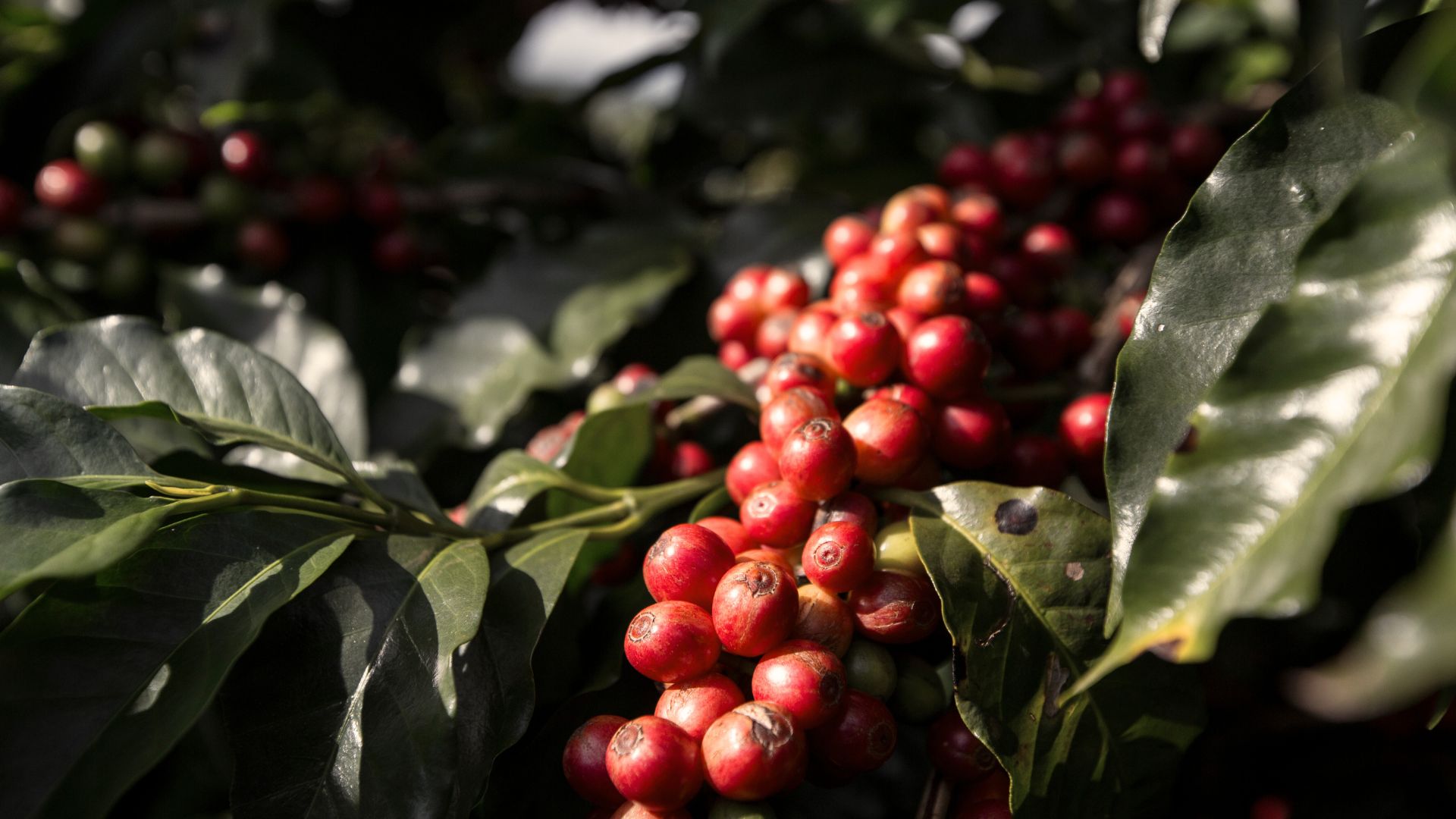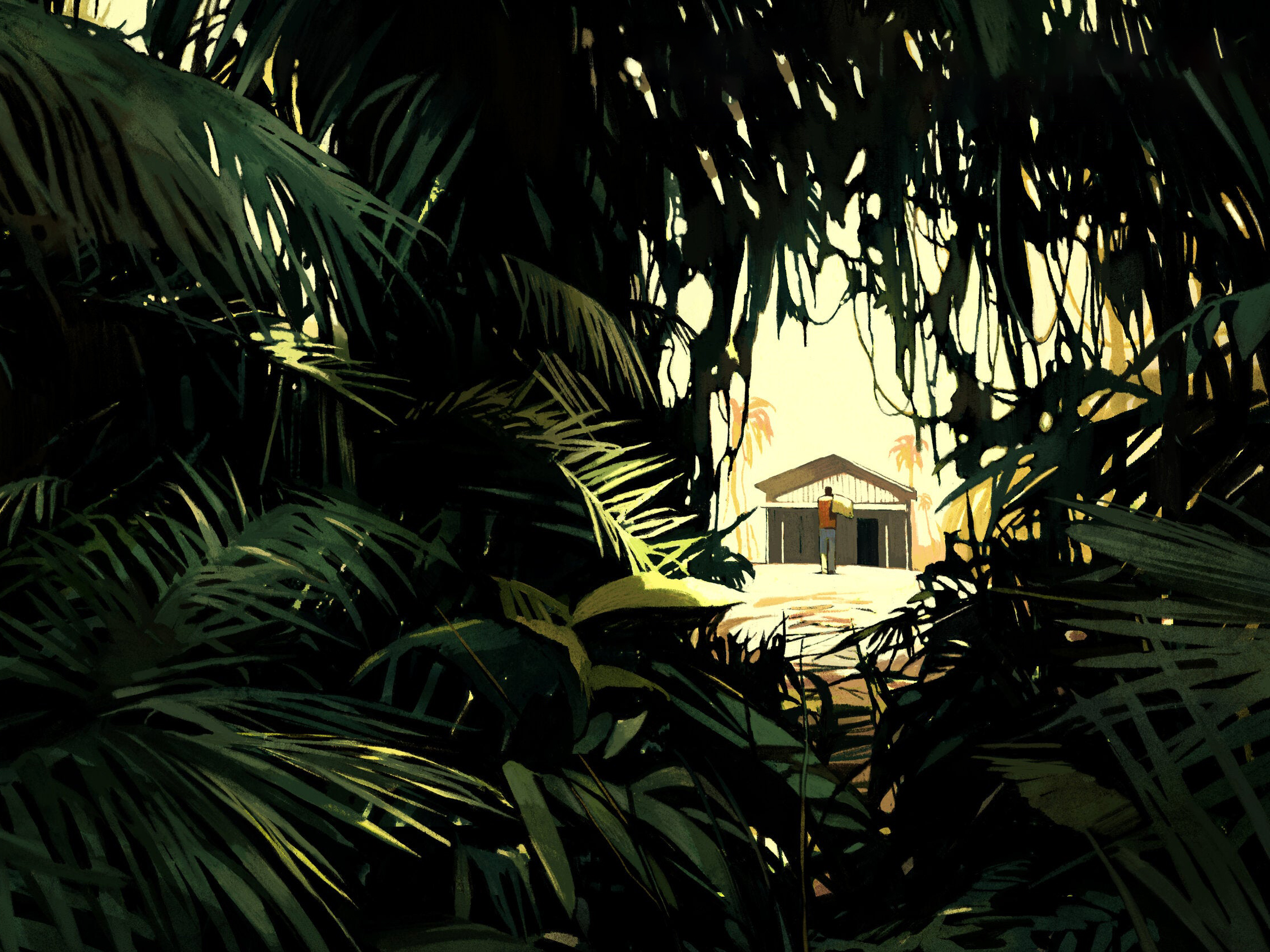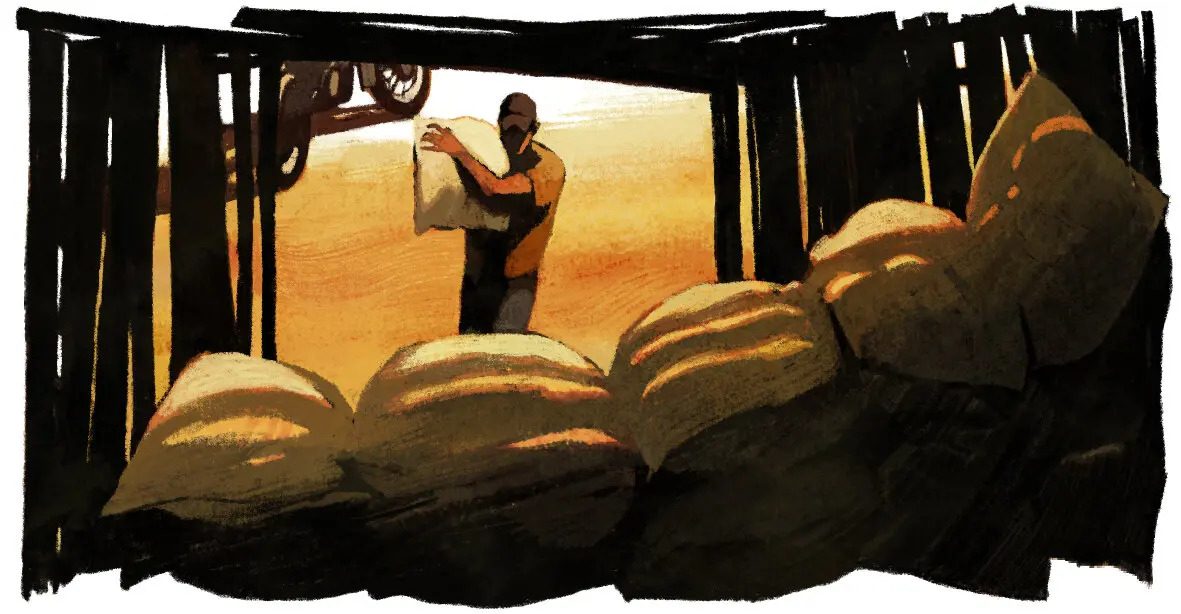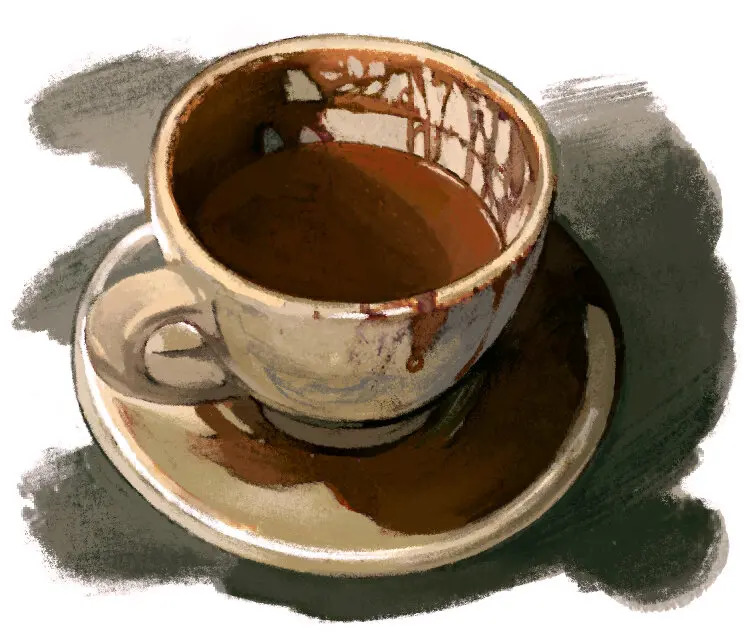
Determining the “Value” of Specialty Coffee: In 2021, the SCA published an improved definition for specialty coffee. It is rewritten as follows: “ Specialty coffee is a type of coffee or coffee experience that is recognized for its special attributes and, by virtue of these attributes, it has a significant added value in the market.” The definition places special emphasis on the idea of properties and the additional value they create . Then the question arose: how does the attribute-value relationship work in the real world? What attributes have values, and what determines their values?
In a moment’s analysis of the above, we will see: We value coffee by many attributes – from taste and stimulant to its role in global trade, and these attributes are defined prices according to a complex, very humane economic and moral system. Fortunately, there exists a discipline to study human complexity, the field of anthropology. And luckily, there is one brilliant anthropologist who has spent most of his career asking exactly this question: how do people value coffee?

Edward Ted Fischer – Professor of Anthropology at Vanderbilt University, he recently published the book: Making Better Coffee: How Maya Farmers and Third- Wave Tastemakers Create Value . Maya and the third wave of value creation flavor makers .) In it he shares his decades of research on the subject of coffee’s value. This article is based on his research points published in Journal 25, issue 19, of SCA under the title From Value to Values: Determining the Worth of Coffee .
How much is coffee worth? seems like a simple question, calculated using basic arithmetic about the costs of supply, demand, production, and transportation; but the more we dig into it, the more complex the question becomes – even philosophical.
SCA
Different types of “values” in a cup of coffee
Sometimes, at the coffee shop we are asked to pay more for quality. But for most customers, choosing is like viewing a restaurant’s unfamiliar wine list: price indicates quality, not vice versa. In the premium world of craft coffee, purveyors focus on the quality of the cup – the origin of the species, the processing method and roasting technique, the sought after flavors. But who decides which flavor is worth it? In addition to the quality in a cup of coffee, consumers pay for other types of intangible value – an indirect connection with the grower, the excitement of discovering a new experience, the appreciation of the craft. craft coffee, ethical commitment to fair trade, cultural values, social status, etc.
We tend to refer to “economic value” (or money price) as “real value”. This is partly due to the search for financial gain, but also because market values are easy to calculate: with Kilograms, Dollars and Euros, we have solid metrics to work with, for comparisons. dissimilar things. But what about morality, dignity or love? Such values are against quantification, but no less important. Indeed, for most of us, they play a central role in our personality and sense of self. Such values are based on subjective measures of what is good, bad or bad – an intuitive perception rather than a mathematical calculation. The point is that much of life revolves around balancing these different types of values,
With premium coffee, building a story that makes customers pay more for symbolic, ethical and imaginative values is crucial for coffee producers to make a profit. max for their coffee. This requires transforming the physical characteristics of coffee into consumer moral and cultural stories. The real power in this system does not lie in uncovering latent sensory attributes (or discovering quality), but in deciding what constitutes quality and therefore what is evaluated. High.
Ways of determining value (economics)
In recent years, the specialty coffee industry has been grappling with how to systematically determine value. The benchmark for the price (money) in the coffee trade is the New York C price for arabica coffee futures contracts for pre-processed, bagged, export documents – all of which are included in the C Price. In this world of bulk goods, the classification or grade of the goods determines the value. This makes it simpler to reduce lot variations and attributes down to one category, the easier it is to trade. For a batch of coffee, there is no difference as to who produced a particular bag of coffee, and any difference in taste is not a matter of the market.

However, it is clear that using commodity prices as a reference for specialty coffees is misleading, as Specialty Coffees are traded on their own unique characteristics. Therefore, the question is how to explain the unique characteristics of specialty coffee in a pricing system?
Long ago, it was thought that items had intrinsic value, and even today, many people assume that certain things still carry this value – think gold, diamonds or cash. However, from a social science perspective, all of these are conventions by culture: we (at one point) decided they were valid, which worked as long as people They all share that belief. The field of valuation studies based on economics, sociology, and philosophy has identified a number of different approaches to value determination.
First, add up all the labor, then consider the use value
The first scholars to observe the connection between economics and philosophy, including Adam Smith and Karl Marx , considered economic value to be derived from labor (taking into account the total labor input for all factors of production). This is an ethical as well as an economic argument that recognizes the value of human labor (check out this article).). However, as the specialty coffee market clearly demonstrates, value is not determined simply by adding up all the labor costs. Even if a coffee farmer in Central America invests considerable effort in the production of a coffee on the slopes of a mountain 1350m above sea level, if its taste is not convincing enough? According to SCA’s cupping scorecard, its price will still be lower than coffee beans that grow wild in the rainforests of Ethiopia.
That leads us to consider use value, or benefit. From this point of view, value is determined by the tangible benefit an item provides to the consumer. Meaning that if something is very useful to me, it is worth more than something less beneficial. Use value discussions often focus on material benefits. The tangible benefits of coffee largely stem from its pharmacological properties. With caffeine – coffee creates a noticeable effect on the body, improves concentration and mental alertness, increases muscle endurance, etc. It helps us work more efficiently and continue energize the body. In short, it’s very useful.
However, tangible benefit, while it can tell us a lot, is nonetheless only one way of looking at the total value. Adam Smith wrestled with this in his diamond and water paradox: If economic value is based on the value of tangible benefits, then why is diamond so much more expensive than water? The exchange or price value of diamonds (or luxury watches) far exceeds their use value. The same is true of specialty coffee – if we just look at its uses as a food with pharmacological value. Conventional economic theory treats exchange value as a function of supply and demand: it is the scarcity of rare diamonds or coffee that causes prices to soar. But that leaves out the question of what creates demand, since not everything that is scarce is desired!
When “value” is purely subjective?
What if we consider use-values beyond measurable physical impacts? The pleasure that coffee brings, for example, comes not only from its biochemical properties, but also from more subjective and emotional associations – discerning enjoyment, a particular story or inspiration. In this way, subjective interest is not simply a reflection of innate desires, but is also influenced by cultural vibes—vibes that are partly, though not exclusively, rooted. from marketing.
This led Carl Menger and Georg Simmel and other economists to argue that economic value comes from a subjective sense of value (The Subjective Theory of Value ). This perspective allows us to explain the subjective and symbolic values that contribute to the true value of specialty coffee: stories, business relationships, ethical ideals, human values , roasting and crafting, etc. These iconic aspects should not be treated as mere marketing ploys (even if they may serve that purpose). They are real!

Not to mention, when taste preferences come into the equation, it obfuscates the distinction between intrinsic material attributes and symbolic and cultural values. Like many foods, terroir has become a key element of the value of premium coffee, a rare coffee with a distinctive flavor that is created from a complex of climatic, soil, and methodological conditions. farming methods, plant varieties, etc.
However, value creation for specialty coffee is not solely based on terroir ; It takes a whole system of knowledge about roasting, marketing and extraction to exploit and consume those “rare flavors”. Coffee experts and enthusiasts alike play an active role in defining what “quality” is, how a distinct taste turns into a more valuable one. The coffee world’s concept of “quality” is geared towards objectivity, but this may obscure the fundamental fact that quality is not discovered but created, shaped through symbolic values. of the creators of the taste.
The irony is that in the search for quality, it is coffee experts and enthusiasts who are determining what constitutes quality. Through exploration and competition, they work together to figure out which traits should be overpriced and which should be discounted, which flavors will satisfy this season’s tastes and which won’t. .
Manufacturer’s value
In addition to the income it generates, coffee provides other types of value to producers. The best proof comes from the way coffee in the Guatemalan highlands is sold under the title “Speiclaty Coffee” by roasters in the United States; Edward Ted Fischer ‘s book Making Better Coffee shows how economic value is created by translating social, moral and political values into Dollars in a way.
For generations, the Mayan farmers of Guatemala – evicted from their lands in the late 19th and early 20th centuries – were forced to work in harsh conditions as migrant workers. seasonally on coffee plantations. During the 1990s and 2000s, the change in quality in the international coffee market changed the landscape dramatically. To be fair, the steep slopes of the mountains with an elevation of more than 1,350m above sea level – where the Maya migrated to – are ideal for growing high-quality coffee. The shift in quality in the consumer market created a boom in many Maya communities as former plantation workers began growing and selling their coffee to the North American market.
Recently, as the demand for specialty coffee has increased. The delicate flavor of the coffees of the Maya highlands, sometimes exorbitantly priced. Just as important as the terroir difference, however, are the symbolic values – cultural stories built around the coffee bean. While specialty coffee brokers justify the high margins by citing geographical origins as well as the science of sensory analysis. Manufacturers succeed by influencing consumer stories, engaging in quality discussions. All of this puts Maya farmers at a disadvantage, because most of them lack the cultural capital and social conditions needed to speak out in the lucrative specialty coffee market.

For most farmers (not just the Mayans of Guatemala), coffee is seen not as a worthwhile way to get rich, but as an important source of income that can lift a family out of poverty. Significantly, it also converges the cultural values of the community. For Mayan farmers, one of the most valuable aspects of the specialty coffee boom is that it allows them to retain control of their land. Land is a form of economic security, but there is also the dignified value that comes with owning one’s own land. This is associated with a common sense that real wealth, that is, wealth obtained in a genuine way, comes from their own land.
Farmers seek to keep (and expand) their land while producers and consumer tastes pursue ever more unique flavors and stories. The importance of provenance and farmer affiliation in the specialty coffee market has changed, as benefits flow to small producers who are fortunate enough to grow coffee on a small scale. the region has suitable altitudes and a unique microclimate.
The reality is that growing coffee is hard work and Mayan farmers mostly live in very modest circumstances, with limited resources and opportunities. They are acutely aware of the dangers of depending on fickle global markets. However, as described by Edward Ted Fischer, coffee represents an opportunity in a context of few opportunities, an imperfect but valuable means of achieving one’s hopes, dreams and desires. them about a good life.
Consider the value of coffee in a system
Ultimately, finding a single determinant of coffee’s economic value is misguided, as it comes from a variety of sources. For farmers, the coffee they grow carries intangible cultural, social and economic significance. For their part, coffee shops in the third wave not only sell coffee, but also sell the stories and values associated with them. In other words, they translate stories of representation and geographic origin into principles of conscientious consumption – converting intangible value into financial gain. In it, the symbolic and social aspects may not be essential to market value but constitute it.
Capitalism is a translation machine – translating natural resources, emotional attachments, cultural values, time, etc., combined with endless advertising to create goods and ultimately, price and profit.
Anna Lowenhaupt Tsing – American anthropologist

The coffee trade can be thought of as a dense, intertwined network of connections. The economic activity of farmers is not only related to the market but also to family and society, religious and ideological beliefs, relationship with nature and community. Likewise, the consumer’s choice of a particular coffee is not solely based on reasonable calculations of price and tangible benefits; it is also the synthesis (in consciousness) of identity and culture, economic and demographic, status and moral and emotional constraints.
In short, “good coffee” depends not only on taste but also on a complex value system formed between farmers, roasters and consumers. This work of valuing belongs to all of us, a right realization that can empower us to make better coffee for both drinkers and growers.
Reference:
-
Xác định “Giá trị” của Cà phê đặc sản: https://primecoffea.com/xac-dinh-gia-tri-cua-ca-phe-dac-san
- Specialty Coffee: Determining the “Value” of Specialty Coffee: https://www.scribd.com/book/585487443/Making-Better-Coffee-How-Maya-Farmers-and-Third-Wave-Tastemakers-Create-Value